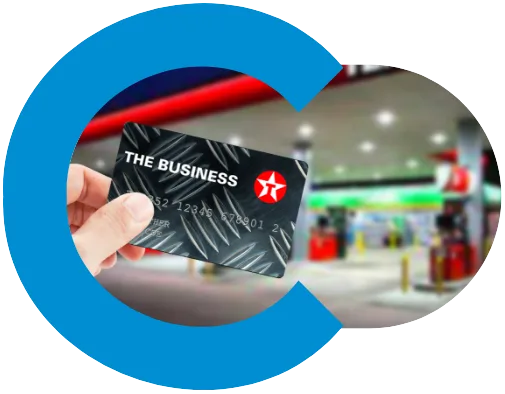1. Streamlined Fuel Management
Managing fuel expenses for a fleet of vehicles can be a daunting task, especially when drivers are filling up at various stations, and receipts are collected manually. Fleet fuel cards simplify this process by offering a centralized platform to track fuel transactions.
Instead of relying on paper receipts and manual logging, fleet managers can access real-time data through online dashboards, providing a comprehensive overview of fuel usage across the entire fleet. This level of visibility enables businesses to monitor fuel consumption, detect irregularities, and identify opportunities for cost savings.
By having a clear view of fuel spending, businesses can make informed decisions, such as optimizing routes or scheduling regular maintenance to ensure vehicles are running efficiently, further cutting down on fuel waste.
2. Control Over Spending and Budgeting
One of the primary benefits of fleet fuel cards is the level of control they offer over spending. With traditional methods of fuel payment, employees may use company credit cards or cash to pay for fuel, leading to potential overspending or misuse. Fleet fuel cards, on the other hand, can be pre-set with spending limits, ensuring that employees do not exceed the budget.
For instance, businesses can set daily or monthly fuel limits for each driver, which helps prevent unauthorized purchases and reduces the chances of overspending. Additionally, fleet fuel cards can be restricted to fuel purchases only, eliminating the possibility of non-fuel-related charges. This added control enhances budgeting accuracy and prevents unexpected costs from derailing financial plans.
3. Discounts and Loyalty Programs
Many fuel card providers partner with major fuel chains to offer discounts and rebates to businesses that use their services. These fuel discounts can be significant, often ranging from a few cents to several dollars per gallon, depending on the volume of fuel purchased. By leveraging these discounts, businesses with a fleet of vehicles can significantly reduce their fuel expenses over time.
In addition to discounts, some fleet fuel cards offer loyalty programs, rewarding businesses with points or cash back based on the amount of fuel purchased. These rewards can be redeemed for further savings or used for other business-related expenses. By taking advantage of these discounts and loyalty programs, companies can reduce their overall fuel costs and keep their fleet management budget in check.
4. Reduced Administrative Costs
Fleet fuel cards not only help businesses save on fuel but also reduce administrative costs. Without a fleet fuel card, businesses must process individual fuel receipts, track mileage, and manually record fuel usage for each vehicle in the fleet. This is a time-consuming and error-prone process that can require significant manpower and resources.
Fleet fuel cards simplify this process by automatically recording fuel transactions and providing detailed reports that are easy to access and analyze. These reports can include information such as fuel consumption, costs, and trends, saving fleet managers hours of work each week. By reducing administrative overhead, businesses can allocate resources to other critical areas, further improving their bottom line.
5. Preventing Fraud and Misuse
Fraudulent activities, such as using fuel cards for personal expenses or inflating fuel costs, can be a major concern for businesses with large fleets. Fleet fuel cards are designed to prevent such misuse by implementing security features such as PIN codes, vehicle-specific cards, and transaction monitoring. This added layer of security ensures that fuel cards are only used for authorized purposes, reducing the risk of fraud and unnecessary expenses.
Moreover, fleet managers can track every transaction made with the card, allowing them to quickly spot suspicious activity and take corrective action. This level of oversight minimizes the chances of costly errors or fraudulent behavior, helping businesses maintain better control over their fuel spending.
6. Improved Driver Accountability
Another way fleet fuel cards contribute to cost reduction is by fostering greater accountability among drivers. Since each card is linked to a specific vehicle and driver, businesses can easily track who is using the card and how much fuel they are purchasing. This creates a sense of responsibility, as drivers know that their fuel usage is being monitored.
By promoting accountability, businesses can reduce fuel waste caused by inefficient driving habits or unnecessary trips. For example, if a driver consistently exceeds fuel limits or uses more fuel than necessary, fleet managers can address the issue directly, encouraging better driving behavior and reducing overall fuel consumption.
7. Enhanced Fleet Maintenance
Fleet fuel cards can also contribute to cost reduction by helping businesses stay on top of vehicle maintenance. Regular maintenance is essential to keeping vehicles running efficiently and reducing the likelihood of costly repairs or breakdowns. Some fleet fuel cards integrate with fleet maintenance programs, providing data on fuel efficiency and identifying potential issues with specific vehicles.
By using this data, fleet managers can schedule maintenance before minor issues become major problems, ensuring that vehicles remain in optimal condition. Well-maintained vehicles are more fuel-efficient and less prone to costly breakdowns, which ultimately leads to lower operational costs.
Fleet fuel cards are more than just a convenient way to pay for fuel—they are a powerful tool that contributes to cost reduction in multiple ways. From streamlining fuel management and offering discounts to enhancing accountability and preventing fraud, fleet fuel cards help businesses save money and optimize their fleet operations. By implementing a fleet fuel card program, businesses can enjoy greater control over their spending, improve their budgeting accuracy, and ultimately reduce costs, making them a valuable asset for any company that relies on a fleet of vehicles.
